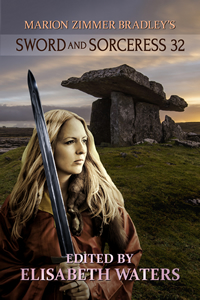 Crime Writers of Canada announced this
year’s slate of nominees for the Arthur Ellis Awards at events across the
country. Established in 1984, the awards are named after the nom de travail of Canada’s
official hangman. (Yes, our country once had one). The Arthur Ellis awards
celebrate excellence in crime writing. Eligible books were published in 2016,
with the exception of the Unhanged Author, which awards a prize to the year’s
best unpublished novel. Good luck to all of the nominees:
Crime Writers of Canada announced this
year’s slate of nominees for the Arthur Ellis Awards at events across the
country. Established in 1984, the awards are named after the nom de travail of Canada’s
official hangman. (Yes, our country once had one). The Arthur Ellis awards
celebrate excellence in crime writing. Eligible books were published in 2016,
with the exception of the Unhanged Author, which awards a prize to the year’s
best unpublished novel. Good luck to all of the nominees:
Best Novel
Kelley Armstrong, City of the Lost, Penguin Random House of Canada
Michael Helm, After James, McClelland & Stewart
Maureen Jennings, Dead Ground in Between, McClelland & Stewart
Janet Kellough, Wishful Seeing, Dundurn Press
Donna Morrissey, The Fortunate Brother, Viking Canada
Best First Novel sponsored by Kobo
Ryan Aldred, Rum Luck, Five Star Publishing
R.M.Greenaway, Cold Girl, Dundurn Press
Mark Lisac, Where the Bodies Lie, NeWest Press
Amy Stuart, Still Mine, Simon & Schuster Canada
Elle Wild, Strange Things Done, Dundurn Press
Best Novella: The Lou Allin Memorial Award
Rick Blechta, Rundown, Orca Book Publishers
Brenda Chapman, No Trace, Grass Roots Press
Jas. R. Petrin, The Devil You Know, Alfred Hitchcock Mystery Magazine, Dell
Publishing
Linda L. Richards, When Blood Lies, Orca Book Publishers
Peter Robinson, The Village That Lost Its Head, Ellery Queen’s Mystery
Magazine, Dell Publishing
Best Short Story
Cathy Ace, Steve’s Story, The Whole She-Bang 3, Toronto Sisters in Crime
Susan Daly, A Death at the Parsonage, The Whole She-Bang 3, Toronto Sisters in
Crime
Elizabeth Hosang, Where There’s a Will, The Whole She-Bang 3, Toronto Sisters
in Crime
Scott Mackay, The Ascent, Ellery Queen’s Mystery Magazine, Dell Publishing
David Morrell, The Granite Kitchen, Ellery Queen’s Mystery Magazine, Dell
Publishing
Best Book in French
Marie-Eve Bourassa, Red Light: Adieu, Mignonne, Groupe Ville-Marie Littérature,
vlb éditions
Chrystine Brouillet, Vrai ou faux, Éditions Druide
Guillaume Morrissette, Terreur domestique, Guy Saint-Jean Éditeur
Johanne Seymour, Rinzen et l’homme perdu, Libre Expression
Richard Ste-Marie, Le Blues des sacrifiés, Éditions Alire
Best Juvenile/YA Book
Gordon Korman, Masterminds: Criminal Destiny, Harper Collins Publishers Ltd.
Norah McClintock, Trial by Fire, Orca Book Publishers
John Moss, The Girl in a Coma, The Poisoned Pencil-Poisoned Pen Press
Caroline Pignat, Shooter, Tundra Books
Eva Wiseman, Another Me, Tundra Books
Best Nonfiction Book
Christie Blatchford, Life Sentence: Stories from Four Decades of Court
Reporting — or, How I Fell Out of Love with the Canadian Justice System,
Doubleday Canada
Joe Friesen, The Ballad of Danny Wolfe: Life of a Modern Outlaw, Signal
McClelland & Stewart
Jeremy Grimaldi, A Daughter's Deadly Deception: The Jennifer Pan Story, Dundurn
Press
Debra Komar, Black River Road: An Unthinkable Crime, an Unlikely Suspect, and
the Question of Character, Goose Lane
Bobbi-Jean MacKinnon, Shadow of Doubt: The Trial of Dennis Oland, Goose Lane
Unhanged Arthur for Best Unpublished First
Crime Novel sponsored by Dundurn Press
Mary Fernando, An Absence of Empathy
S.J. Jennings, The Golkonda Project
Charlotte Morganti, Concrete Becomes Her
Ann Shortell, Celtic Knot
Mark Thomas, The Last Dragon
The winners will be
announced at a Gala Awards Dinner in Toronto on May 25, 2017. For more
information, check out Crime Writers of Canada’s website at
www.crimewriterscanada.com




















